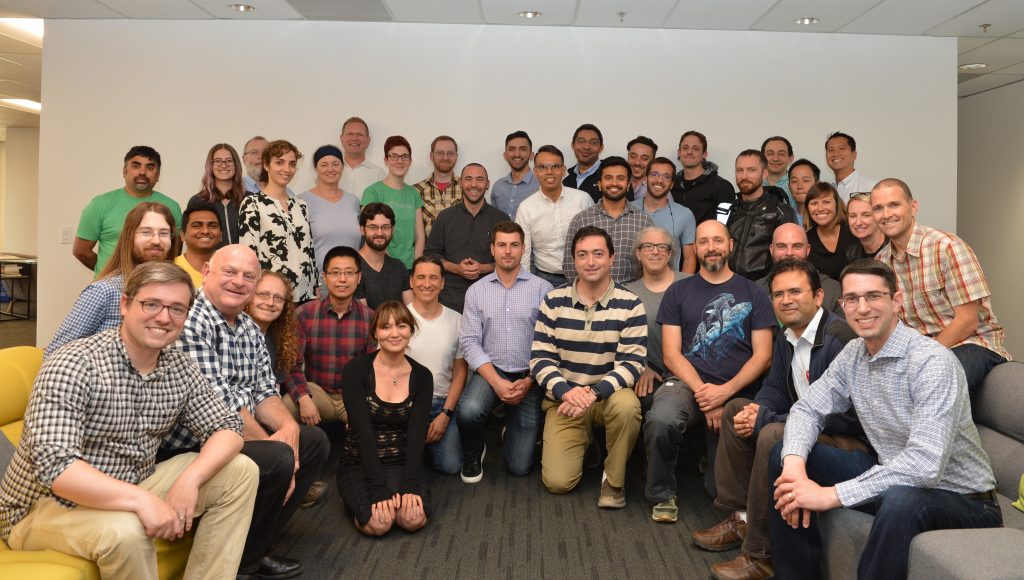
With AI’s meteoric rise, autonomous systems have been projected to grow to more than 800 million in operation by 2025. However, while envisioned in science fiction for a long time, truly intelligent autonomous systems are still elusive and remain a holy grail. The reality today is that training autonomous systems that function amidst the many unforeseen situations in the real world is very hard and requires deep expertise in AI — essentially making it unscalable.
To achieve this inflection point in AI’s growth, traditional machine learning methodologies aren’t enough. Bringing intelligence to autonomous systems at scale will require a unique combination of the new practice of machine teaching, advances in deep reinforcement learning and leveraging simulation for training. Microsoft has been on a path to make this a reality through continued AI research breakthroughs; the development of the powerful Azure AI platform of tools, services and infrastructure; advances in deep learning including our acquisition of Maluuba, and the impressive efficiencies we’ve achieved in simulation-based training with Microsoft Research’s AirSim tool. With software developers at the center of digital transformation, our pending acquisition of GitHub further underscores just how imperative it is that we empower developers to break through and lead this next wave of innovation.
Today we are excited to take another major step forward in our vision to make it easier for developers and subject matter experts to build the “brains”— machine learning modelfor autonomous systems of all kinds with the signing of an agreement to acquire Bonsai. Based in Berkeley, California, and an M12 portfolio company, Bonsai has developed a novel approach using machine teaching that abstracts the low-level mechanics of machine learning, so that subject matter experts, regardless of AI aptitude, can specify and train autonomous systems to accomplish tasks. The actual training takes place inside a simulated environment.
The company is building a general-purpose, deep reinforcement learning platform especially suited for enterprises leveraging industrial control systems such as robotics, energy, HVAC, manufacturing and autonomous systems in general. This includes unique machine-teaching innovations, automated model generation and management, a host of APIs and SDKs for simulator integration, as well as pre-built support for leading simulations all packaged in one end-to-end platform.
Bonsai’s platform combined with rich simulation tools and reinforcement learning work in Microsoft Research becomes the simplest and richest AI toolchain for building any kind of autonomous system for control and calibration tasks. This toolchain will compose with Azure Machine Learning running on the Azure Cloud with GPUs and Brainwave, and models built with it will be deployed and managed in Azure IoT, giving Microsoft an end-to-end solution for building, operating and enhancing “brains” for autonomous systems.
What I find exciting is that Bonsai has achieved some remarkable breakthroughs with their approach that will have a profound impact on AI development. Last fall, they established a new reinforcement learning benchmark for programming industrial control systems. Using a robotics task to demonstrate the achievement, the platform successfully trained a simulated robotic arm to grasp and stack blocks on top of one another by breaking down the task into simpler sub-concepts. Their novel technique performed 45 times faster than a comparable approach from Google’s DeepMind. Then, earlier this year, they extended deep reinforcement learning’s capabilities beyond traditional game play, where it’s often demonstrated, to real-world applications. Using Bonsai’s AI Platform and machine teaching, subject matter experts from Siemens, with no AI expertise, trained an AI model to autocalibrate a Computer Numerical Control machine 30 times faster than the traditional approach. This represented a huge milestone in industrial AI, and the implications when considered across the broader sector are just staggering.
To realize this vision of making AI more accessible and valuable for all, we have to remove the barriers to development, empowering every developer, regardless of machine learning expertise, to be an AI developer. Bonsai has made tremendous progress here and Microsoft remains committed to furthering this work. We already deliver the most comprehensive collection of AI tools and services that make it easier for any developer to code and integrate pre-built and custom AI capabilities into applications and extend to any scenario. There are over a million developers using our pre-built Microsoft Cognitive Services, a collection of intelligent APIs that enable developers to easily leverage high-quality vision, speech, language, search and knowledge technologies in their apps with a few lines of code. And last fall, we led a combined industry push to foster a more open AI ecosystem, bringing AI advances to all developers, on any platform, using any language through the introduction of the Open Neural Network Exchange (ONNX) format and Gluon open source interface for deep learning.
We’re really confident this unique marriage of research, novel approach and technology will have a tremendous effect toward removing barriers and accelerating the current state of AI development. We look forward to having Bonsai and their team join us to help realize this collective vision.
